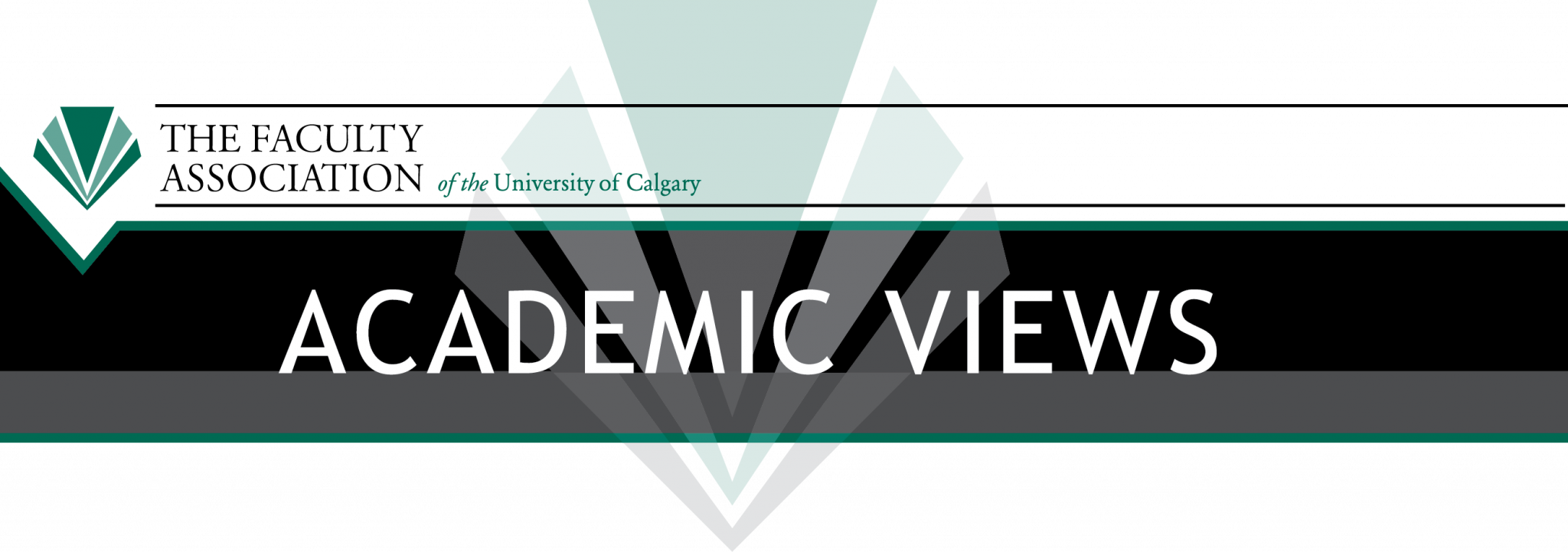
Dear Colleagues,
As I’m sure you are aware, Fair Employment week (October 19 to 23) is an opportunity to note the significant role played by sessional instructors in the life of the university and, in our case, the Faculty Association. In these challenging circumstances it is important to keep in mind the precarious nature of the work carried out by sessional instructors and provide support to them.
This term there are almost 500 sessional instructors at the University of Calgary and they are responsible for delivering almost 800 half-course equivalents (HCE). The University of Calgary could not achieve its enrollment goals or deliver its programs without the contributions of our hardworking sessional instructors. More than 1/5 of the academic staff are sessionals! Although we don’t have access to full demographic information on our sessional instructors, it is clear that almost 3/5 of them are women, a much higher percentage than that of the permanent faculty.
It is important for us to keep in mind that the critical work done by sessionals is not very well compensated. In many cases, if a sessional instructor is fortunate enough to have a TA, the TA may be making more money than the sessional. As well, sessional instructors have quite limited access to Professional Expense Reimbursement (PER). This became problematic during the winter term, as all instructors were required to pivot to on-line instruction, a pivot that often required the purchase of new equipment and in many cases an upgrading of the internet connections at the instructor’s home as well as additional expenses related to working from home. For many sessionals, the costs of these increases came out of the general compensation they received for teaching a course.
We were very happy to negotiate in the spring and summer and for the Winter 2021 term, in a Memorandum of Agreement with the administration, a clause that granted sick leave to sessionals who contracted COVID-19 during the period in which they were teaching. While this was a positive step, it is yet another indication of the precarious nature of sessional employment more broadly and the work that needs to be done on matters relating to health.
The fraught nature of sessional teaching can also be seen with moves to an increase in the number of courses expected to be taught face-to-face in the upcoming Winter term. Permanent faculty can negotiate with their academic unit regarding the modality of course delivery but sessionals do not always have this ability. They will be notified that the courses to be taught will be delivered face-to-face, and if they are not comfortable with that mode of delivery, their only option is not apply for the course.
In short, the COVID-19 pandemic has helped to highlight the difficult working conditions experienced by sessionals, as well as the reliance of the University of Calgary on them to deliver programs and keep up enrollments.
As Fair Employment Week unfolds, I ask all of us to thank our sessional colleagues for the contributions they make and the professional manner in which they discharge their responsibilities. We should use this opportunity to highlight the precarious nature of the work they perform and bring these inequities again to the attention of the administration and the public more broadly.
On behalf of all members of TUCFA, I want to acknowledge the critical work performed by sessionals, the reliance of the University of Calgary on their work, and the financial challenges faced by the highly educated and skilled professionals who work in this area.
This year CAUT has again organized a number of activities relating to Fair Employment that I encourage all members to engage with. The CAUT events are copied below and will also be available on our website.
Best wishes,
David
